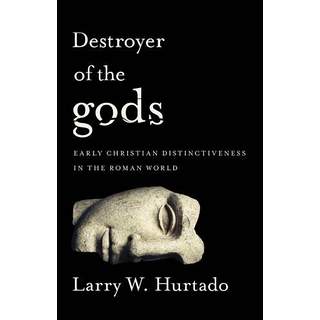BEN: In your discussion in the last full chapter of the book, talking about the differences in behavior between Christians and non-Christians, I notice that you do not discuss the pacifism of the early Christians, namely their refusal to serve in the Roman military, or any army for that matter, based on a certain reading of Jesus’ teachings. That surely would have been a distinctive practice. I agree that this practice was probably in part based on the concern about the requirement to worship Mithras or some false deity if one was part of an army unit that did so, but that was not the sole reason. Any reason why you didn’t discuss this feature that would have made Christians stand out like a sore thumb?
LARRY: I don’t discuss pacifism or military service in my book because, to my knowledge, we don’t have a lot of information about the matter relating to the earliest centuries. But I may be mis-informed. I wrote a book that drew upon what I knew, and it shows, perhaps, the limits of that knowledge!
BEN: In your discussion of Paul’s advice to males on sexual behavior in 1 Thess. I think you are right that he was equalizing the situation, going against the thrust of the sexual double standard, and nowhere is this clearer than in 1 Cor. 7 where Paul says, quite against ancient convention, that the husband’s body belongs exclusively to the wife, just as the reverse is true, as you mention. You go on to treat the ‘husband of one wife’ passage in 1 Timothy, and I quite agree that here again Paul or a Paulinist is trying to eliminate the sexual double standard, as you say. What we see here goes quite against various of the standard mores of the Greco-Roman world, but is this in fact different from early Jewish mores as well in some respects? If so, in what respects? Is it less patriarchal in trajectory and character?
LARRY: Earliest Christian sexual standards were very much derived from, and so aligned with, Jewish ones. Again, what is different is the nature/extent of the social project. Judaism tried to promote these standards among fellow Jews. Early Christianity promoted these standards across the ethnically mixed body of adherents that made up Christian circles.













